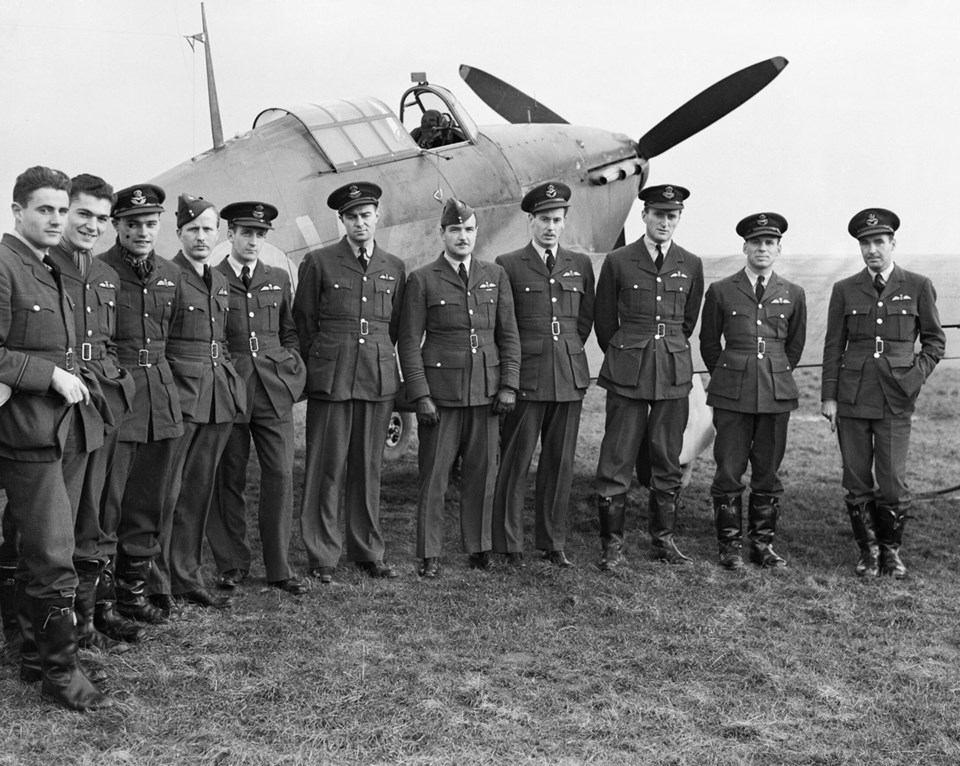Author and historian Ted Barris is a storyteller. He’s engaging, entertaining, enlightening, and all that from just a thirty minute phone conversation.
So it’s no surprise that The Book Keeper is hosting him again at the Sarnia Library Theatre on Monday, Oct. 7 starting at 7 p.m.
Barris has written 22 non-fiction books, talked to over 6,000 veterans and at 75 years young hasn’t lost his love of history and writing.
While in Sarnia, Barris will be promoting his latest book, Battle of Britain: Canadian Airmen in their Finest Hour.

“I've got a room that's my library and it's about maybe 12 by 12 or 15 by 15. You could fill a library area, my library, with books about the Battle of Britain. There are that many. And they've been mostly written by British historians,” Barris tells The Journal.
“Not very often will you find the stories, the lives, the deaths, the experiences of Canadians who perished in the Battle of Britain…participated in that crucial battle. And yet there were. We were the largest non-British component of the Battle of Britain…We had 105 pilots who served in the Battle of Britain and nearly 200 ground crew,”
Barris' book tells the stories of the Canadians who flew aircraft in a battle that lasted 113 days against the German Luftwaffe.
It was a friend of his that suggested writing a book about a battle that already had so many written about it. Barris says he was surprised that the missing element was Canadian.
“He helped direct me to find some of these people. And I've got stories that nobody else has…I'm inspired to listen to veterans. I look for gaps in the telling of Canadian history. And I love to go back to these stories and find the gold nuggets that everybody's overlooked,” explains Barris.
Barris adds that the Royal Canadian Air Force, which is celebrating its 100th anniversary this year, had paired down its personnel pretty severely after the First World War. While this was happening, Canadians fell in love with aviation.
“If you had a few bucks and you really wanted to learn how to fly, you could. And it was a great, great pastime. Weekend flyers were flourishing everywhere,” tells Barris.
“The Royal Air Force (RAF), in contrast to us…recognized in the 1930s that war was coming. They saw Hitler and Nazism and the fascism that was growing in Europe and the RAF recognized that they would need pilots. And so they threw an offer across the Commonwealth to any able-bodied pilot, somebody who had a private pilot's license, we will invite you to come to Britain on your own coin and to try to be tested and given the opportunity to become a military pilot…118 Canadians jumped at the opportunity to go and join the Air Force in Britain. And the carrot that the RAF offered was this: if you come and if you make the grade, we will give you what's called a short service commission. And that's a fancy way of saying, we will make you an officer of the Royal Air Force.”
As with any offer too good to be true, Barris explains, there was a hitch. If the Canadian pilots qualified, they had to give the RAF six years of service.
“Guys who had been weekend flyers and were suddenly thrown into the front lines of the Battle of Britain.”
As for how more than 80 Canadian pilots made it out alive after such a long and brutal battle when our country isn’t always necessarily known for its military prowess? Barris thinks it all comes down to where we come from.
“These guys came from disparate backgrounds. Some of them were farmers, some of them were fishermen, some of them were lumberjacks, some of them were construction workers, some of them were students. And everybody in those categories I've just listed understands the word task,” says Barris.
“If you give any of those guys a task, they get it, they know that they now have to find out how to accomplish it…And these guys treat their daily flying, sailing, infantry work, artillery work, whatever it is, as a task to accomplish, to complete. And that's something that really makes them stand out in every theatre of war that I've observed.”
Barris will be sharing stories and anecdotes for the crowd at the Library Theatre, and with tickets only $5, it should be a good evening.
“My attitude in presenting is, my attitude in anything I do, and that's to do it as energetically and as entertainingly,” Barris explains.
“I want to make sure that I've got great visuals, and sound, and I don't stand at a lectern, and I often don't use a microphone because I've got a decent voice as a broadcaster to project.”
Barris explains that he also shares movie clips, stills and interviews he’s done with veterans as part of the presentation. The author knows sharing the stories of the ones who fought is important as we get further and further away from the war.
“We're going to lose the essence of what that generation during the Second World War set out to do and what they accomplished. And if I've contributed in a way... of making people slow down for a second and learn the names Pat Sclanders and Ernie McNab and all the others I've described, then I've accomplished something. Making sure people remember where we came from and what that generation accomplished”

